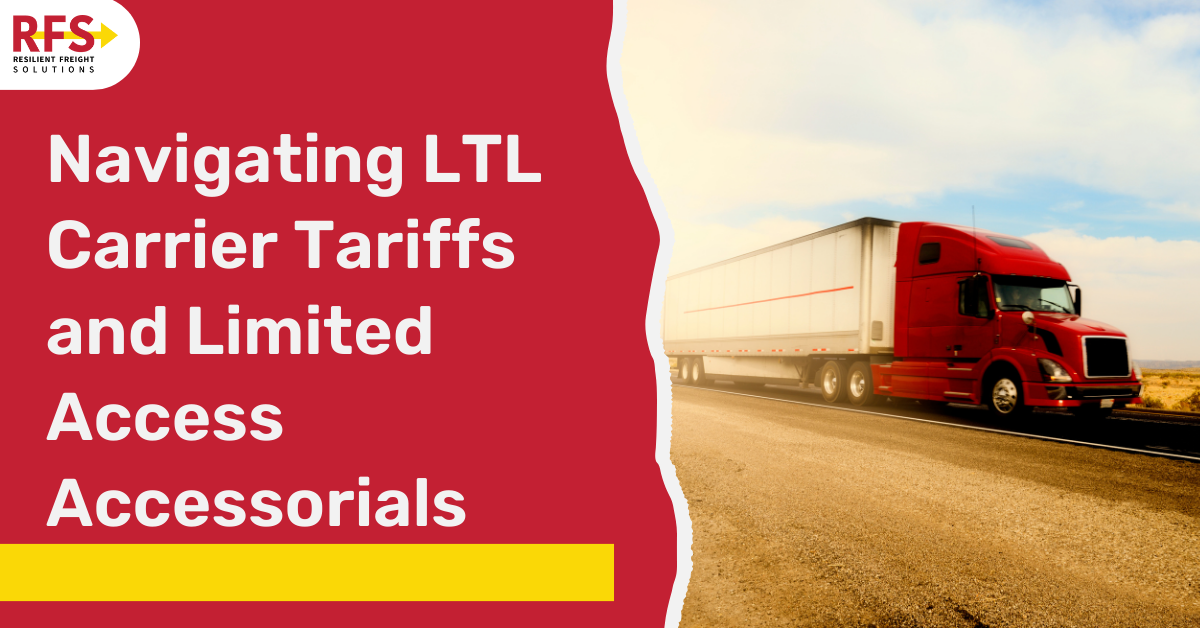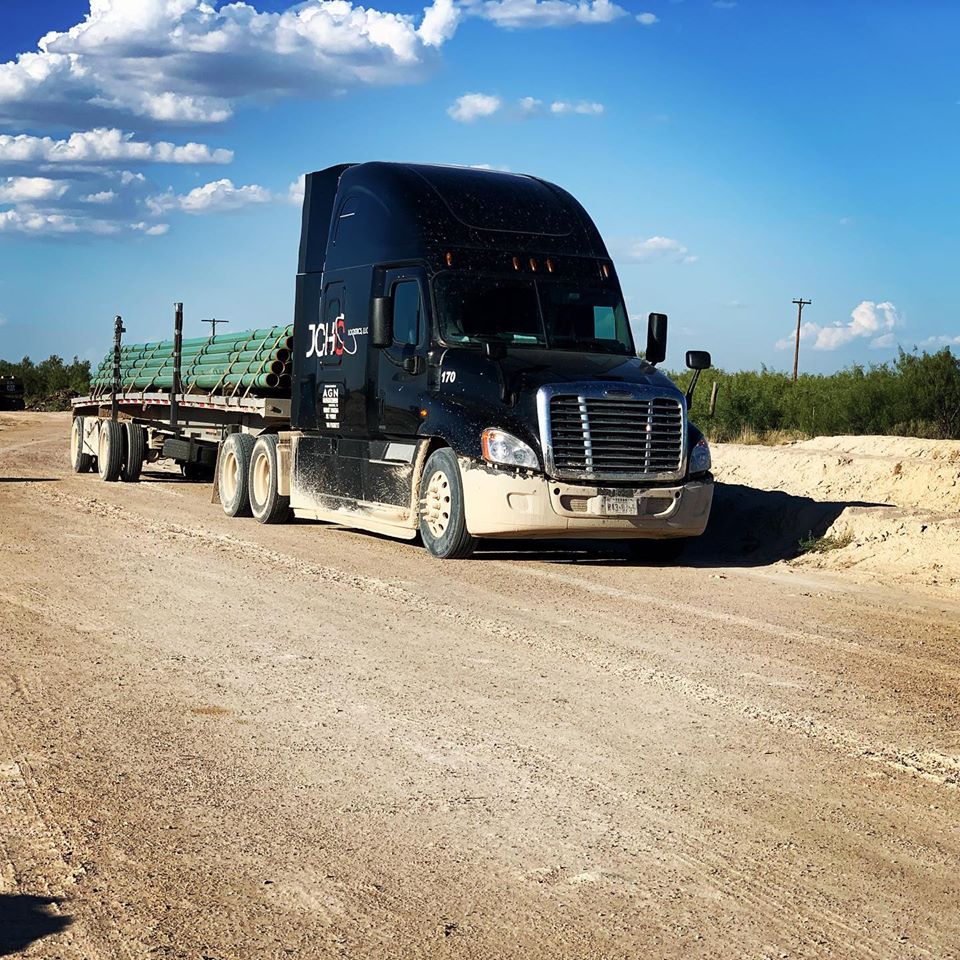Dear Valued Customers:
In logistics, understanding the intricate details of LTL (Less Than Truckload) carrier tariffs and accessorial charges is crucial for shippers and businesses looking to optimize their supply chain operations. Resilient Freight Solutions is committed to helping you navigate the complexities of freight shipping. In this blog post, we will shed light on LTL carrier tariffs and the often overlooked but significant factor of Limited Access Accessorials. By understanding these concepts, you can avoid unexpected extra charges and make informed decisions about your shipping needs.
LTL Carrier Tariffs:
-
What Are LTL Carrier Tariffs? LTL carrier tariffs are a set of rates and charges that define the cost of shipping your freight. LTL carriers typically publish these tariffs and are subject to change based on various factors, including market conditions, fuel prices, and capacity.
-
Understanding Tariff Libraries: Resilient Freight Solutions has access to Tariff Libraries from the leading LTL carriers in the United States. These libraries contain the most up-to-date rate information for various shipping services. By referring to these libraries, you can ensure you have the most accurate and current pricing data for your shipments.
-
Variable Tariffs: It's important to note that tariffs can vary not only between carriers but also depending on the origin and destination of your shipment, the type of freight, and other specific requirements. Access to the tariff libraries of major carriers allows you to compare rates and choose the most cost-effective option for your unique shipping needs.
Limited Access Accessorial Charges:
-
What Is Limited Access? Limited access, which used to depend on location size, now covers a wider range of categories. Recent changes in LTL carrier tariffs have added places like residential areas, construction sites, military bases, schools, hotels, restaurants, public storage, farms, and more to this category. This shift shows how the logistics industry is evolving, highlighting the need to stay informed about carrier policies. Limited access isn't solely based on location size anymore. It's about the specific challenges carriers face during deliveries and pickups.
-
Limited Access Accessorial Charges: When your shipment is destined for or picked up from a limited access location, carriers often charge additional fees to compensate for the extra time and effort required. It's essential to be aware of these accessorial charges to avoid unexpected costs in your shipping budget.
-
Mitigating Limited Access Charges: Resilient Freight Solutions can help you identify limited access locations and determine the potential accessorial charges. By proactively planning for these fees and choosing carriers that offer competitive rates for limited-access shipments, you can reduce the impact on your shipping expenses.
Navigating LTL carrier tariffs and limited access accessorials may seem complex, but it's a critical aspect of efficient logistics management. Resilient Freight Solutions is here to provide the necessary tools and information to make informed decisions about your shipping needs. By utilizing the Tariff Libraries of major LTL carriers, you can ensure that you have access to the most accurate rate data. Moreover, by understanding limited access accessorials and taking steps to mitigate these charges, you can optimize your shipping operations and minimize unexpected expenses.
In the ever-evolving world of logistics, staying informed and proactive is the key to a resilient and cost-effective supply chain. If you have any questions or need help with your LTL shipments, contact Resilient Freight Solutions. We are here to help you navigate the complex terrain of freight shipping and ensure that your shipments arrive on time and within budget.
Here are a few links to LTL Carrier's Tariff Libraries for your benefit. We will keep adding, so please save this page for future reference (last updated 10/31/2023):
- XPO Logistics: https://www.xpo.com/tariff-library/
- FedEx: https://www.fedex.com/content/dam/fedex/us-united-states/services/FXF_100_Series_Rules_Tariff.pdf
- R&L Carriers: https://www.rlcarriers.com/freight/shipping-documents/rules-tariff
- Magnum LTL: https://magnumlog.com/wp-content/uploads/2023/09/Rules-Tariff-125-8-30-2023.pdf
- Central Transport: https://www.centraltransport.com/!downloads/ctii_rules.pdf
- ABF Freight: https://arcb.com/sites/www/files/2023-10/ARC111-2023-10-02_0.pdf
- TForce Freight: https://tforcefreight.com/downloads/UPGF-102-R-20231011.pdf
- Estes Express: https://www.estes-express.com/resources/fees-and-surcharges/rules-tariff





Post a comment